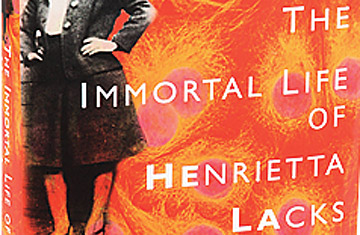
The Immortal Life of Henrietta Lacks
The Immortal Life of Henrietta Lacks
By Rebecca Skloot
Crown Publishers; 337 pages
In 1951 a young black woman named Henrietta Lacks was admitted to Johns Hopkins Hospital and given a diagnosis of cervical cancer. During treatment, doctors removed a sample of her tumor and sent it to a research lab without her permission. Lacks died a few months later, but the sample lived on--and on and on. The strain, dubbed HeLa, was the first human tissue to be successfully kept alive as a culture. Since her death, Lacks' cells have been shot into space, infected with tuberculosis and zapped with radiation to test the effects of a nuclear bomb. HeLa helped develop the polio vaccine and drugs for everything from Parkinson's to AIDS. But Lacks' children, many of them too poor to afford medical care, were never consulted about or even thanked for their mother's involuntary gift to science. Journalist Rebecca Skloot's history of the miraculous cells reveals deep injustices in U.S. medical research--chief among them the fact that the woman whose body helped cure us all left behind family members too scared to go to the hospital when they get sick.
READ [X]
SKIM
TOSS
